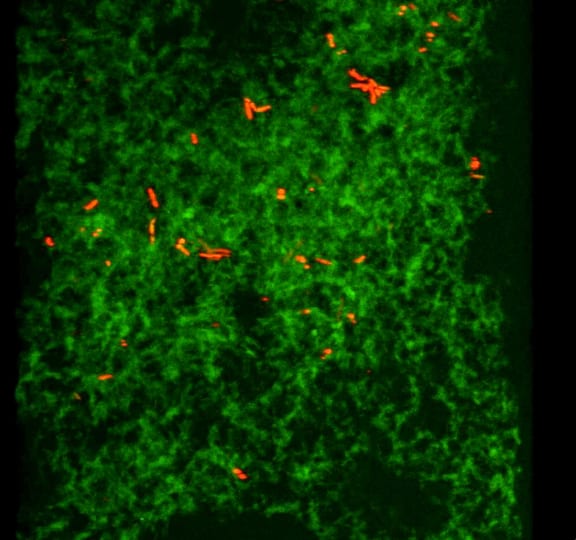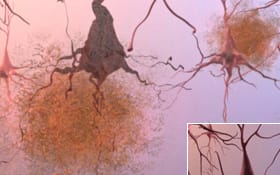A discovery about the operation of a protein linked to Alzheimer's disease could shift the way the neurological condition is treated.
The protein beta amyloid gathers in tangles in the brain, causing neurological damage and eventually killing brain cells. Past Alzheimer's research has focussed on reducing levels of beta amyloid, but a team of researchers based in Australia and the US has found that it could be an essential part of our immune system.
Their research, published in the journal Science Translational Medicine, suggests that beta amyloid is one of the ways our body fights off bad bugs; it's an antibiotic that we produce to keep infections under control.
The study was on mice and worms, but the discovery that beta amyloid is part of an immune response could mean that future treatments of Alzheimer's are more targeted at avoiding particularly damaging infections through testing or vaccination.
Robert Moir, an Assistant Professor in Neurology at Massachusetts General Hospital and Harvard Medical School, is one of the study's authors.

Salmonella bacteria (red) entrapped in a amyloid matrix (green) at an early stage of infection. Photo: (Supplied)

Plaques and tangles in brain tissue Photo: (Alzheimer's Association)

